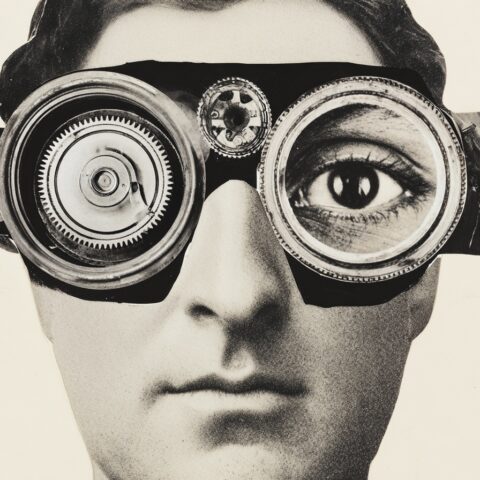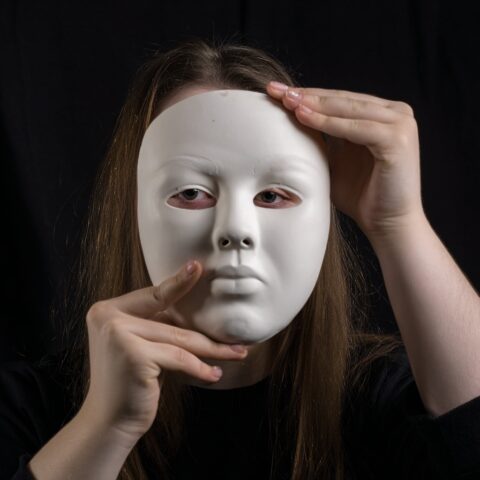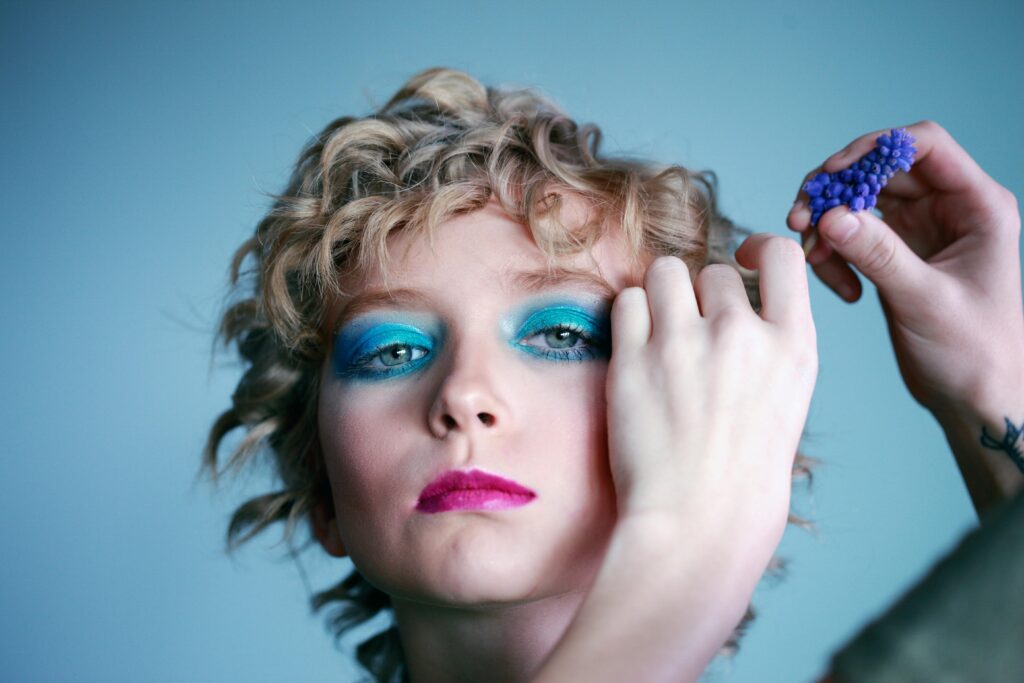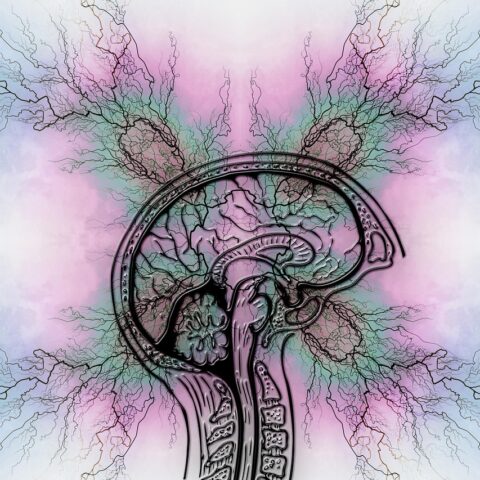Neurodivergence in women often goes undiagnosed, misinterpreted, or ignored. Learn how ADHD, autism, and other neurodivergent traits show up differently in women — and why being missed hurts.
💔 Are you a Neurodivergent Woman?

Growing up, I was the quiet girl with big emotions and a chaotic brain. I got good grades, kept my meltdowns private, and learned early how to mimic the girls around me. On the outside, I looked “fine.” On the inside, I was drowning.
I didn’t get diagnosed with ADHD until adulthood. And when I finally learned what neurodivergence in women actually looks like, I sobbed for two days straight. Because I realized how many years I spent thinking I was just broken.
This is for every girl, woman, or femme-presenting person who got missed — who was called emotional, dramatic, lazy, or “just sensitive” when really… they were neurodivergent all along.
Table of Contents
🔍 Why neurodivergence in women gets missed
Here’s the harsh truth: the entire system was built to recognize neurodivergence in boys.
ADHD? Diagnosed mostly in hyperactive, disruptive boys.
Autism? Measured by external behaviors — like stimming or social difficulty — in ways boys typically display.
But women? We:
- Internalize symptoms
- Mask like professionals
- Blend in until we collapse
That’s why girls who daydream, struggle silently, or stay quiet often slip through the cracks. We become high-functioning, anxious, perfectionist women with mystery illnesses and identity crises — and no one ever thinks to look at our brains.
📋 Signs of neurodivergence in women (that most people miss)
These don’t always show up like the classic checklist. But they’re real, and common.
⚡ ADHD in women might look like:
- Constant mental noise but outward stillness
- Chronic disorganization hidden by perfectionism
- Emotional intensity that explodes in private
- Forgetting birthdays but remembering random childhood trivia
- Saying yes too much, then burning out
- Fidgeting with jewelry or hair instead of bouncing off walls
🧩 Autism in women might look like:
- Deep empathy but exhaustion from socializing
- Masking through fashion, makeup, and rehearsed scripts
- Obsessive interests in socially “acceptable” topics (ex: literature, astrology)
- Sensory overload from lights, fabric, or sound — but hiding it
- “Chameleon” behavior — adapting your personality to whoever you’re with
😶 The art (and cost) of masking

Most neurodivergent women are excellent actors. We watch others, learn the rules, and build entire fake versions of ourselves just to survive. It starts in childhood:
- Smiling when overwhelmed
- Hiding meltdowns
- Forcing eye contact
- Copying social norms
And it works — until it doesn’t.
Until we hit our twenties, thirties, forties and suddenly can’t do it anymore. That’s when burnout hits. That’s when the mystery illnesses, anxiety, and depression often get diagnosed before anyone realizes we’re neurodivergent underneath it all.
Masking is survival. But long-term? It’s soul erosion.
🧠 Why this hurts so much
Being missed means you grow up thinking your pain is personal failure.
You don’t know you’re neurodivergent — so you assume:
- You’re just bad at life
- Everyone else is handling things better
- You need to “try harder”
- Your emotions are “too much”
- You’re selfish, dramatic, broken
It becomes your identity.
And by the time you realize it was neurodivergence all along… you have to unlearn the entire story you’ve been telling yourself for decades.
That grief is real. And it’s valid.
🧘♀️ Gentle questions to ask yourself
(Answer these honestly. There are no wrong answers.)
- Did you spend your childhood feeling like you were “faking normal”?
- Do you hold yourself to impossible standards just to feel “enough”?
- Do you collapse in private after social events?
- Have you been called “too sensitive,” “intense,” or “high maintenance”?
- Do you have physical symptoms (fatigue, pain, stomach issues) that no doctor can explain?
- Do you feel like you’re always one step behind other women — no matter how hard you try?
If any of these hit deep, you’re not alone.
🧱 Cultural pressure and the “good girl” trap
Girls are taught early:
- Be polite.
- Be quiet.
- Don’t interrupt.
- Smile more.
- Don’t make things weird.
So what happens when your brain can’t follow those rules?
You learn to fake it. Neurodivergent girls quickly realize they get punished for being “too much,” so we:
- Memorize social scripts
- Copy behavior from TV characters
- Smile while dissociating
- Say “I’m fine” even when we’re falling apart
We become “good girls” on the outside and total chaos on the inside. That disconnect — between how we act and how we feel — becomes a ticking time bomb.
⚠️ The misdiagnosis pipeline
So many neurodivergent women get diagnosed with everything except neurodivergence first.
Some of the most common wrong turns:
- Anxiety disorders (common but often co-occurring, not the full picture)
- Depression
- Borderline Personality Disorder (BPD)
- Bipolar II
- Eating disorders
- Complex PTSD
- “Somatic symptom disorder” (aka “we don’t know, so it’s probably in your head”)
Doctors — especially those trained with male-based criteria — often miss the neurodivergent root cause. And because most women have been masking for decades, the symptoms don’t look “textbook.”
Instead, they look emotional. Messy. Female-coded.
And those get pathologized differently.
🌀 Femme-coded neurodivergence: what it looks like
Let’s break this down even more. Here are examples of how autism and ADHD show up in femme people — and why they don’t get caught.
💄 Autism in women:
- Special interests that look socially acceptable (ex: makeup, mythology, fashion, psychology)
- Being highly verbal, even charming — but it’s all scripted
- Perfectionism hiding extreme sensory discomfort
- Emotional meltdowns framed as “hormonal” or “unstable”
- Fixating on identity, morality, justice, or relationships
🎀 ADHD in women:
- Daydreaming instead of hyperactivity
- Emotional dysregulation framed as “mood swings”
- Cleaning frenzies followed by weeks of executive paralysis
- Never feeling truly rested, even with sleep
- Spending 6 hours doing a 20-minute task because your brain derailed 14 times
💬 My story: Jenny Mirah on late discovery
When I found out I had ADHD, I felt like someone handed me the missing manual to my life.
Every “personality flaw” suddenly made sense:
- My inability to start tasks
- My emotional rollercoasters
- My need to stim in subtle ways
- My love-hate relationship with routines
- The way I’d feel like a genius one day and a disaster the next
It wasn’t that I was lazy or dramatic. I was neurodivergent — and no one ever noticed because I was too good at blending in.
I mourned the years I spent hating myself.
Then I started rebuilding who I really was.
🛠️ How to begin unmasking (and healing)
Unmasking isn’t about quitting your job and stimming in public on day one. It’s about slowly letting your real self take up space.
Here’s where to start:
🌱 1. Identify your masks
Where do you feel most fake? Who are you performing for?
Start by noticing — you don’t need to change everything at once.
🗣️ 2. Practice small honesty
Try saying, “Actually, I need to think about that,” instead of giving a reflexive answer.
Or “I’m overstimulated and need a minute,” instead of pushing through.
🤝 3. Find safe spaces
Online ND communities, group chats, even just one neurodivergent friend can be life-changing.
You need mirrors that reflect you back — not the masked version.
✨ 4. Redefine your identity
You’re not lazy.
You’re not unstable.
You’re not broken.
You were navigating the wrong blueprint.
Time to draw your own map.
Here’s Part 3, wrapping up the full article on neurodivergence in women with all final sections, including internal links for EEAT and engagement.
🧾 Why diagnosis matters — even if you’re not seeking one
You don’t need a formal diagnosis to know your truth. But here’s why getting one (or even exploring the possibility) can help:
✅ Language
When you name what’s happening, you stop blaming yourself. You get to say, “This is how my brain works — and here’s how I adapt.”
✅ Self-forgiveness
Knowing you’re neurodivergent can help undo years of internalized shame. You stop measuring yourself by a standard that was never made for you.
✅ Community
Diagnosis can connect you to others like you — people who validate your experience and help you feel less alone.
✅ Accommodations
In school, work, or healthcare, a diagnosis can give you access to tools that support your needs instead of punishing your differences.
That said, even if you never get officially diagnosed, your experience is still valid. Neurodivergence doesn’t need permission to be real.
🧠 Final Thoughts: The Pain and Power of Being a Missed Woman
Neurodivergence in women is like screaming underwater.
No one sees it. No one hears it. But it’s there — the chaos, the exhaustion, the brilliance, the rage.
If you’ve been missed, misdiagnosed, or misunderstood… you’re not alone.
You are not dramatic.
You are not broken.
You are not imagining things.
You are neurodivergent. And now, you know.
❓ FAQ: 12 Questions About Neurodivergence in Women
1. Why is neurodivergence harder to spot in women?
Because women are socialized to mask, stay quiet, and people-please — which hides many classic symptoms.
2. What’s the difference between ADHD in men and women?
Men are more likely to be hyperactive. Women are more likely to be inattentive, emotionally overwhelmed, and internally disorganized.
3. Can women be autistic and not know it?
Yes. Many autistic women don’t get diagnosed until adulthood — if at all — due to masking and non-stereotypical traits.
4. What’s the connection between neurodivergence and burnout?
Masking and unmet needs cause emotional, physical, and cognitive exhaustion over time.
5. Why do neurodivergent women get misdiagnosed with BPD or anxiety?
Because their emotional dysregulation and intense sensitivity get pathologized through a trauma-only lens instead of a neurological one.
6. Is sensory overload part of neurodivergence?
Often, yes — especially in autism and ADHD. Things like lights, noise, and texture can be overwhelming.
7. Can neurodivergent women have successful relationships?
Yes — but it often takes clear communication, boundaries, and self-awareness. ND people love deeply and intensely.
8. Does neurodivergence affect menstruation or hormones?
Many neurodivergent women report sensory and emotional symptoms worsening during hormonal shifts, though this is under-researched.
9. Can trauma mimic neurodivergence?
Some symptoms overlap (like emotional dysregulation), but they have different roots. Some people have both trauma and neurodivergence.
10. Is it possible to outgrow neurodivergence?
No — but you can learn strategies and create environments that work with your brain instead of against it.
11. Do I need a diagnosis to join neurodivergent communities?
No. Self-identification is valid, especially for women and marginalized people who are underdiagnosed.
12. Where can I learn more?
Start with lived experience blogs, ND creators on TikTok or YouTube, and of course — articles like the ones on ADHD Goat.
✍️ About the Author
Hi, I’m Jenny Mirah — neurodivergent, anxious, chronically overwhelmed, and somehow still functioning (mostly). I live with ADHD and a brain that refuses to shut up. I write about mental health, identity, and the messy beauty of being wired differently — not as an expert, but as someone who gets it.
🐐 About ADHD Goat
ADHD Goat is a space for real, unfiltered stories about neurodivergence, mental health, and identity. We don’t sugar-coat the chaos. We embrace it, explore it, and make sense of it together.
→ Learn more about the blog
💌 Want to submit a topic or your own story?
We love hearing from readers who are also figuring themselves out.
Got something you want us to write about? A topic you’re wrestling with?
→ Submit a topic or contact us








